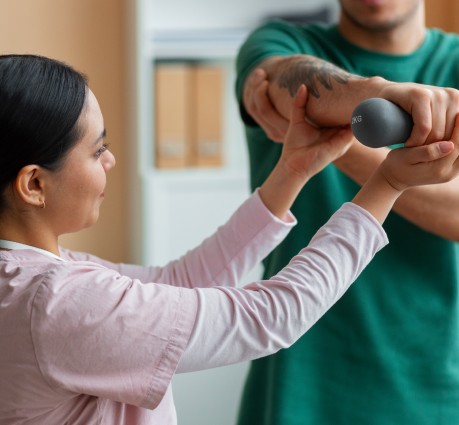Physical therapy, as a profession, dates back to the beginning of the 20th century. Physiotherapy has continued to evolve and respond to the needs of society, with Physiotherapists now practising in a variety of clinical settings with unprecedented levels of professional responsibility. Physiotherapists are integral members of the primary care team and are involved in the prevention of disability, the promotion of positive health, and acting as consultants in restorative care. Physiotherapists practise in many settings, such as outpatient clinics or offices, inpatient rehabilitation facilities, extended care facilities, homes, education or research centres, schools, hospitals, industrial workplaces or other occupational environments, fitness centres, and sports training facilities.
Duration of programme
Level of Study

Study of the structure and organisation of the human body.
Understanding surgical procedures and obstetric care
Exploration of musculoskeletal conditions and treatments.
Understanding research methods and statistical analysis in healthcare
PO6: LIFE-LONG LEARNING: Develop educational experience for proficiency in a profession and promote preventive and rehabilitative aspects of a healthy individual.
Eligibility Criteria
10+2 pass with 50% in PCB.